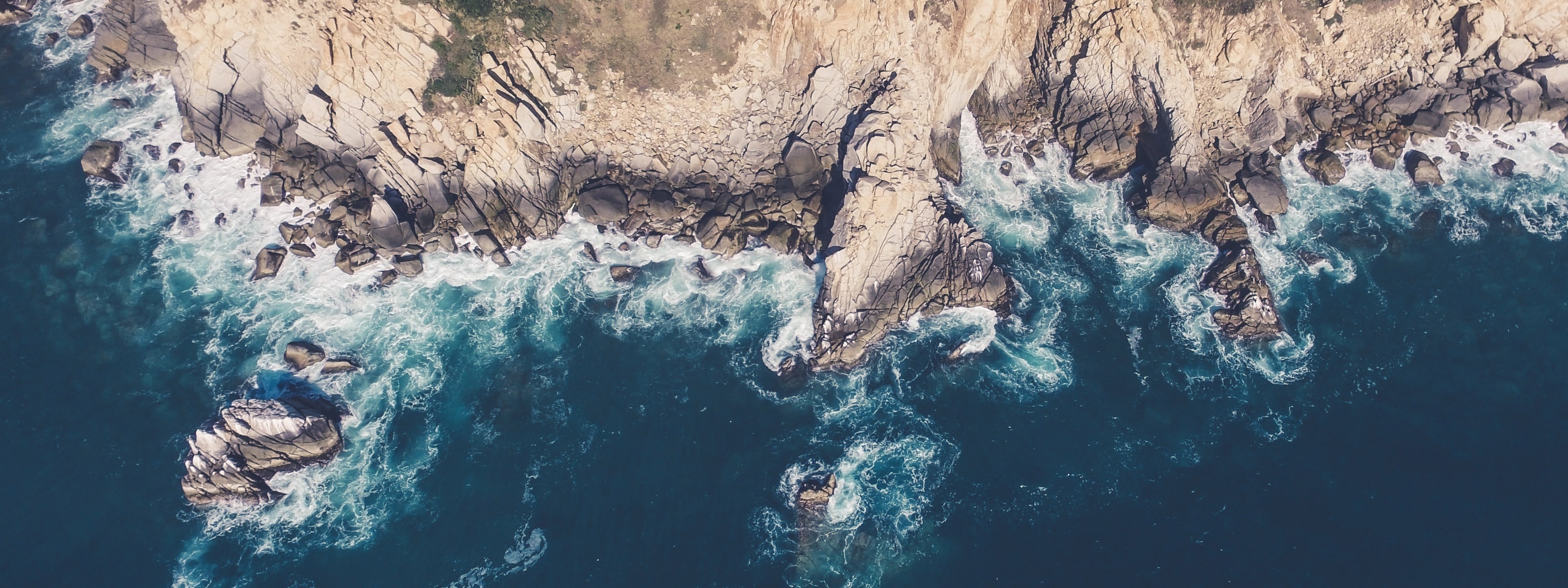Our Research
Coastal erosion and coastal flooding range are among the most severe concerns of coastal communities. In the future, sea-level rise (SLR) increases the risk of loss of land, assets, and lives. The resilience of coastal systems to SLR, to a large extent, is controlled by coastal sediment availability, being heavily impacted by climate change and anthropogenic modifications in the river catchments. Lincoln Centre for Water and Planetary Health integrates riverine and coastal research to unravel the interactions and feedback mechanisms between “coasts and catchments” to better understand the resilience of natural and social coastal systems.
River Catchments
Sediment delivery in river catchments is reduced by an increasing number of river dams for water supply and energy production. Meanwhile, ongoing land use changes (e.g. deforestation) may increase riverine sediment delivery into the coastal zone.
Coastal Ecosystems
Where sufficient sediment is available, coastal ecosystems may establish and facilitate land building and land raising through vertical sediment accretion.
Deltas and Estuaries
Marine and riverine forces shape the morphology of river mouth systems, such as deltas and estuaries. Deltas and estuaries are global population hotspots at risk from riverine, coastal and compound flooding events as well as coastal erosion.
Ecosystem-based Adaptation
Coastal ecosystems are increasingly acknowledged as natural coastal defences, which are ecologically valuable and self-adapting to sea-level rise.
Key Personnel and Expertise
Professor Mark Macklin – Mining and river processes
Dr Mark Schuerch – Estuarine and coastal morphodynamics
Dr Luca Mao – River processes and ecology
Dr Harriet Moore – River restoration and environmental behaviour
Miyo Yoshizaki - Estuarine hydro- and morphodynamics
Publications (with LCWPH affiliation)
| Team Member | Publication |
|---|---|
| Mark Schuerch |
Kiesel, Joshua, Schuerch, Mark, Christie, Elizabeth K., Möller, Iris, Spencer, Tom and Vafeidis, Athanasios T. (2020) Effective design of managed realignment schemes can reduce coastal flood risks. Estuarine, Coastal and Shelf Science, 242 . p. 106844. ISSN 0272-7714
Kiesel, Joshua, Schuerch, Mark, Möller, Iris, Spencer, Tom and Vafeidis, Athanasios (2019) Attenuation of high water levels over restored saltmarshes can be limited. Insights from Freiston Shore, Lincolnshire, UK. Ecological Engineering, 136 . pp. 89-100. ISSN 0925-8574 Schuerch, Mark, Spencer, Tom and Evans, Ben (2019) Coupling between tidal mudflats and salt marshes affects marsh morphology. Marine Geology, 412 . pp. 95-106. ISSN 0025-3227
Vafeidis, Athanasios T., Schuerch, Mark, Wolff, Claudia, Spencer, Tom, Merkens, Jan L., Hinkel, Jochen, Lincke, Daniel, Brown, Sally and Nicholls, Robert J. (2019) Water-level attenuation in global-scale assessments of exposure to coastal flooding: a sensitivity analysis. Natural Hazards and Earth System Sciences, 19 (5). pp. 973-984. ISSN 1561-8633
Schuerch, Mark, Spencer, Tom, Temmerman, Stijn, Kirwan, Matthew L., Wolff, Claudia, Lincke, Daniel, McOwen, Chris J., Pickering, Mark D., Reef, Ruth, Vafeidis, Athanasios T., Hinkel, Jochen, Nicholls, Robert J. and Brown, Sally (2018) Future response of global coastal wetlands to sea level rise. Nature, 561 . pp. 231-234. ISSN 0028-0836 |
| Mark Macklin |
Macklin, M.G. and Lewin, J., 2020. The Rivers of Humankind. In Science, Faith and the Climate Crisis. Emerald Publishing Limited.
Macklin, M.G. and Lewin, J., 2019. River stresses in anthropogenic times: Large-scale global patterns and extended environmental timelines. Progress in Physical Geography: Earth and Environment, 43(1), pp.3-23.
Fuller, IC, Macklin, Mark, Toonen, WHJ, Turner, J and Norton, K (2019) A 2000 year record of palaeofloods in a volcanically-reset catchment: Whanganui River, New Zealand. Global and Planetary Change, 181 (10298). ISSN 0921-8181
Briant, R.M., Cohen, K.M., Cordier, S., Demoulin, A.J., Macklin, M.G., Mather, A.E., Rixhon, G., Veldkamp, T., Wainwright, J., Whittaker, A. and Wittmann, H., 2018. Applying Pattern Oriented Sampling in current fieldwork practice to enable more effective model evaluation in fluvial landscape evolution research. Earth surface processes and landforms, 43(14), pp.2964-2980.
Naylor LA, Spencer T, Lane SN, Darby SE, Magilligan FJ, Macklin MG et al. (2017) Stormy geomorphology: geomorphic contributions in an age of climate extremes. Earth Surface Processes and Landforms 42, 166–190. |
Projects
| Team Members | Projects |
|---|---|
| Mark Schuerch |
A Long-term Perspective On Barrier-marsh Interactions — awarded £1000 by British Society for Geomorphology in 2019 A palaeoecological perspective on the ecological implications of seawall removal at Gibraltar Point, UK Funded by QRA Quaternary Research Fund (Awarded £1250 in 2020) Habitat and Geomorphological development of Gibraltar Point, Lincolnshire, funded by Natural England (Awarded £5000 in 2020) Natural England Advice Request – Geomorphological advice in respect of Saltfleetby-Theddlethorpe Dunes, Lincolnshire, funded by Natural England (Awarded £5000 in 2021) |
| Luca Mao | |
| Harriet Moore | |
| Mark Macklin | Ministry of Business, Innovation and Employment (New Zealand) Endeavour Fund award to Professor I C Fuller, Professor M G Macklin and Dr ST McColl for “Smarter Targeting of Erosion” $750,000 (New Zealand Dollars), 2018-2023. |
| Miyo Yoshizaki | Integrating catchment and coastal processes to increase flood protection in tidally-influenced rivers and estuaries (LCWPH-funded PhD studentship) |
Contact Us
Department of Geography, College of Health and Science
University of Lincoln, Think Tank, Ruston Way, Lincoln, LN6 7DW
Tel: +44(0)1522 835820

